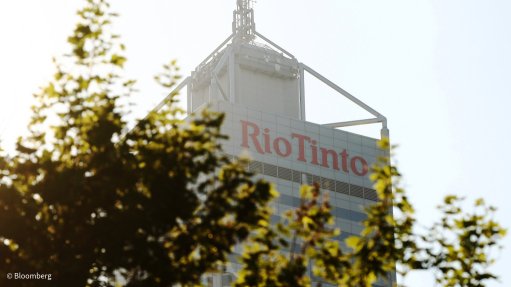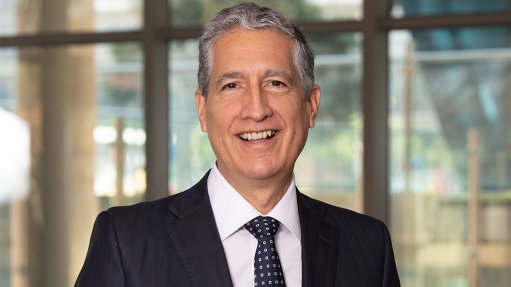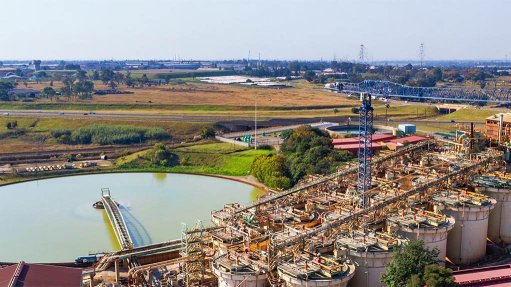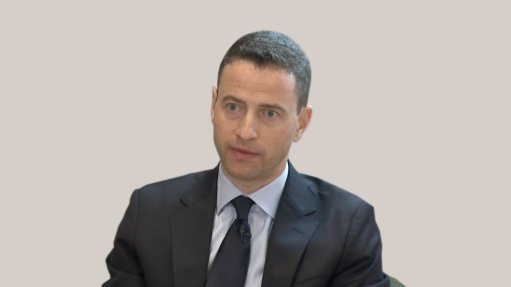Profits mimic recycled demand
Since the emergence of exchange traded funds, platinum has increasingly been used as an investment vehicle. Owing to its value, platinum tends to be recycled quite readily and, because of its rarity and use as a store of value, “there’s no more important precious metal to recycle and refine than platinum”, says precious metals refiner Gauteng Refinery.
Its scarcity, and its being generally nonreactive and extremely resistant to corrosion makes platinum useful in a range of manufactured products, including medical and laboratory equipment, jewellery and catalytic converters. It is also used in production processes such as glass manufacturing.
Moreover, as mines are getting deeper and grades are declining, there are significant and ever-increasing costs associated with extracting and processing platinum-group metals (PGMs) from mines, particularly underground mines.
The status quo, combined with the fact that, unlike other metals, PGMs retain their unique properties and can be processed to reach former purity levels, means that demand for recycled PGMs is increasing.
“For centuries, we have mined the Earth’s rich abundance, and a substantial amount of this resource is now above ground and can be processed for our requirements – this is why it is essential to recycle PGMs,” says Gauteng Refinery manager Michele Beaumont.
She notes that Gauteng Refinery provides “a sustainable and economically viable secondary source of the world’s limited natural resources”.
The sustainability aspect is key, given the trend toward investors’ and companies’ prioritising smaller environmental and ecological footprints.
“Our company is in the business of recovering and refining the six PGMs: platinum, palladium, rhodium, ruthenium, iridium and osmium,” Beaumont enthuses, adding that there are “millions of ounces of platinum and palladium above ground in autocatalysts”.
Palladium has the lowest melting point and lowest density of all the PGMs. As with platinum, its rarity makes it a very valuable precious metal; however, “as rare as palladium is in nature, it can be found in a surprisingly wide array of manufactured items and scrap”, she explains.
Beaumont notes that Gauteng Refinery's palladium feedstocks are primarily obtained from several process residues, electronic scrap, automotive catalysts and scrap printed circuit boards.
She adds that the refinery has a “very well developed urban mining business unit”, with all metals recovered through the unit purified to 99.5% or higher, and sold either as sponge, granules or bars, depending on customer requirements.
Further, a range of osmium-based compounds, such as osmium sulphate, potassium osmate and osmium sponge, can be supplied.
Osmium, with an extremely high melting point of 3 045 ºC reacts readily with oxygen at room temperature unless properly stored and is the heaviest metal known to mankind.
Beaumont stresses that the recovery of PGMs through the smelting and refining of material from spent automotive and chemical catalysts results in energy and resource savings, as the recycling process is less energy intensive and more cost effective than operating a PGMs mine.
“Currently, large amounts of PGM concentrates leave our shores every year. Let’s transform the sunset industry of mining and recreate PGMs processing in South Africa into a centre of excellence by unlocking the opportunities available along the precious metals value chain,” she concludes.
Article Enquiry
Email Article
Save Article
Feedback
To advertise email advertising@creamermedia.co.za or click here
Announcements
What's On
Subscribe to improve your user experience...
Option 1 (equivalent of R125 a month):
Receive a weekly copy of Creamer Media's Engineering News & Mining Weekly magazine
(print copy for those in South Africa and e-magazine for those outside of South Africa)
Receive daily email newsletters
Access to full search results
Access archive of magazine back copies
Access to Projects in Progress
Access to ONE Research Report of your choice in PDF format
Option 2 (equivalent of R375 a month):
All benefits from Option 1
PLUS
Access to Creamer Media's Research Channel Africa for ALL Research Reports, in PDF format, on various industrial and mining sectors
including Electricity; Water; Energy Transition; Hydrogen; Roads, Rail and Ports; Coal; Gold; Platinum; Battery Metals; etc.
Already a subscriber?
Forgotten your password?
Receive weekly copy of Creamer Media's Engineering News & Mining Weekly magazine (print copy for those in South Africa and e-magazine for those outside of South Africa)
➕
Recieve daily email newsletters
➕
Access to full search results
➕
Access archive of magazine back copies
➕
Access to Projects in Progress
➕
Access to ONE Research Report of your choice in PDF format
RESEARCH CHANNEL AFRICA
R4500 (equivalent of R375 a month)
SUBSCRIBEAll benefits from Option 1
➕
Access to Creamer Media's Research Channel Africa for ALL Research Reports on various industrial and mining sectors, in PDF format, including on:
Electricity
➕
Water
➕
Energy Transition
➕
Hydrogen
➕
Roads, Rail and Ports
➕
Coal
➕
Gold
➕
Platinum
➕
Battery Metals
➕
etc.
Receive all benefits from Option 1 or Option 2 delivered to numerous people at your company
➕
Multiple User names and Passwords for simultaneous log-ins
➕
Intranet integration access to all in your organisation


















